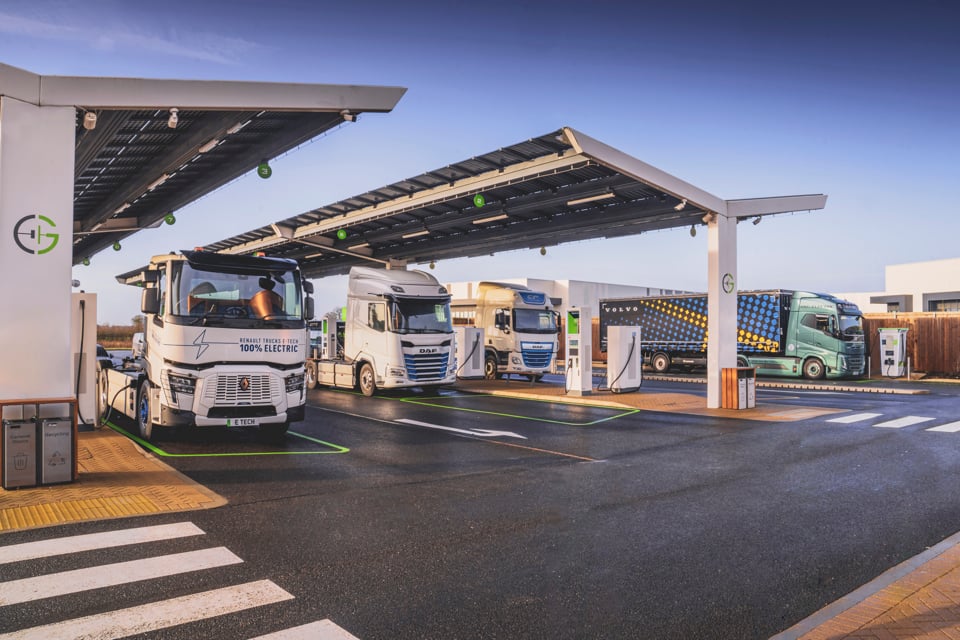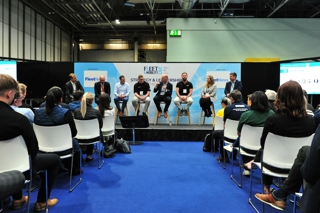BSI has released updated standards designed to accelerate the shift to zero-emission road freight.
The decision follows Innovate UK’s announcement of a plan to establish 54 new infrastructure hubs across the UK for electric vehicle charging and hydrogen refuelling for heavy goods vehicles (HGVs).
The three updated standards, published by BSI in its capacity as the UK national standards body, address a wide range of technology enablers, from design to operational safety and workforce upskilling.
The work has been commissioned by the Department for Transport (DfT) and BSI has worked in partnership with Connected Places Catapult.
Innovate UK’s plan was announced during the Zero Emission HGV and Infrastructure Demonstrations (ZEHID) programme progress summit in London, UK, on March 6.
The £200 million ZEHID programme will see hundreds of zero-emission HGVs deployed alongside a network of 54 planned charging and fuelling hubs across the UK, enabling electric HGV charging and hydrogen refuelling.
Nick Fleming, director of transport and mobility at BSI, said: “Our standards programme has focussed on working with industry and wider stakeholders to develop standards that will help to ensure the infrastructure, good safety practices and facilities for zero-emission HGVs and heavy vehicles are in place to support their future scaling and deployment.
“With decarbonisation of the road freight sector playing such a critical role in reducing the UK's emissions from transport, this programme has highlighted the importance of standardization and we see exciting opportunities to both share knowledge with and to learn from the likes of the van, bus and coach sector, who face similar challenges in the transition to net zero.”
Over the past two years, BSI has worked in partnership with Connected Places Catapult and a wide range of stakeholders across the road freight and energy industry, to help address some of the key challenges towards the transition to zero exhaust emission vehicles.
A strategic advisory group, comprising truck manufacturers, hauliers, charging operators, trade associations, government agencies, and highway authorities, guided prioritisation to ensure relevant and timely development of standards.
Extensive industry engagement led to the identification of areas where new standards could play a crucial role in supporting industry towards the zero-emission transition - the implementation of electric charging and hydrogen refuelling infrastructures, and the protocols for inspection and maintenance of vehicles.
The three standards include BSI Flex 2071 2.0 which offers guidelines for the design, safety, and accessibility of charging stations tailored specifically for HGVs, with recommendations for conducting risk assessments, optimising site layouts and implementing safety measures.
BSI Flex 2072 v1.0, meanwhile, provides guidance on the safe maintenance of battery-electric and hydrogen-fuelled HGVs.
Finally, BSI Flex 2073 v1.0 provides guidance for designers and operators of both mobile and static hydrogen dispensers, ensuring safety, reliability, and efficiency across different service levels and fuel grades. It is the world’s first code of practice for refuelling sites for hydrogen-fuelled heavy-duty vehicles.
Future of roads minister, Lilian Greenwood, said: “Decarbonising road freight is key to reducing transport emissions, and it’s fantastic to see BSI publish new standards to speed up the transition to zero-emission road freight.”























Login to comment
Comments
No comments have been made yet.